Exodus exposes 'abject failure' of world leaders
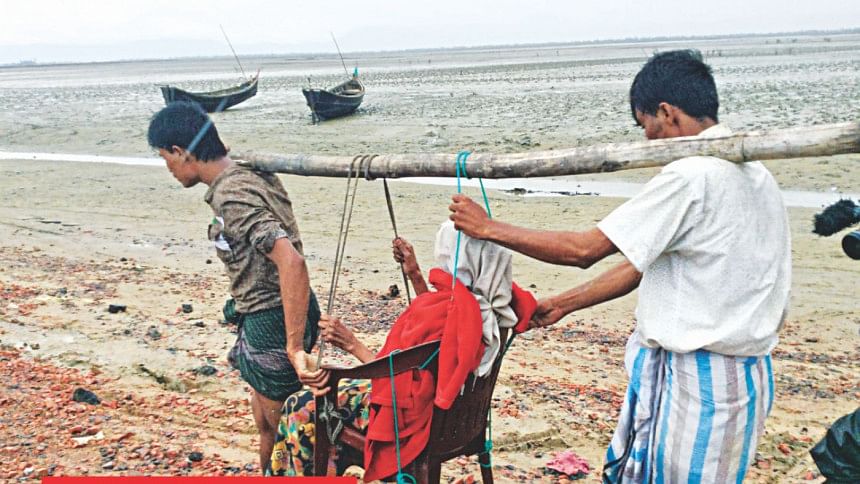
The Amnesty International has said Myanmar Rohingya exodus exposes abject failure of world leaders to deliver solution to the refugee crisis.
"As almost 400,000 refugees flee ethnic cleansing in Myanmar, world leaders meeting at the UN General Assembly should hang their heads in shame that they have not only failed to make good on their promises to take in more refugees, but have actively dismantled refugee rights in many parts of the world," the rights watchdog said yesterday.
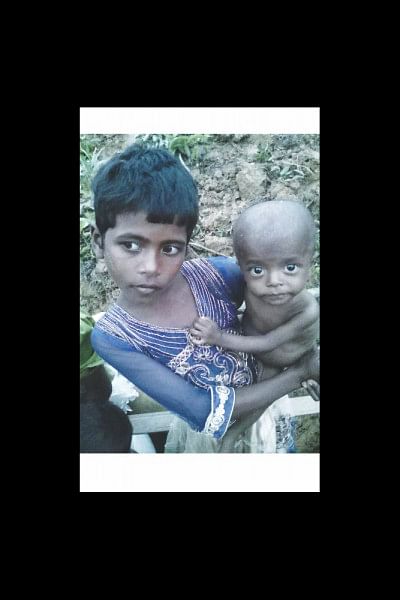
A year on from the Leaders' Summit on Refugees in New York, where leaders pledged to take in more refugees and help vulnerable people forced to flee their countries, global refugee numbers are increasing year on year as conflicts spiral out of control, according to an AI statement.
"The horrific situation in Myanmar is exactly why we need more than just a sticking-plaster approach to helping those fleeing war and persecution. After being subjected to horrific violence, including killings and having their villages burned to the ground, these Rohingya refugees are now facing a humanitarian crisis as Bangladesh struggles to support them," said Salil Shetty, secretary general of Amnesty.
The latest evidence published by Amnesty International points to a mass-scale scorched-earth campaign across northern Rakhine State, where Myanmar security forces and vigilante mobs are burning down entire Rohingya villages and shooting people at random as they try to flee.
"In legal terms, these are crimes against humanity -- systematic attacks and forcible deportation of civilians," said the rights body.
As a consequence, in the space of less than three weeks, almost 400,000 Rohingya refugees have fled Myanmar to Bangladesh. This is more than the total number of refugees who came to Europe by sea last year.
"Poor and low-income countries such as Bangladesh, Uganda and Lebanon are left struggling to deal with huge numbers of refugees, when rich countries who host far fewer should be stepping up to provide aid and resettlement places. Leaders of rich countries prefer to pretend the problem does not exist. What will it take for governments to wake up to the reality that their response to the global refugee crisis is totally broken?" questioned Salil Shetty.
Since the Leaders' Summit, many governments have not only failed to meaningfully address the growing refugee crisis, but have outdone each other in trying to dismantle refugee rights and have failed to respond to new crises around the world.
World leaders gathering in New York for this year's UN General Assembly are expected to discuss the spiraling situation in Myanmar's Rakhine State.
"Instead of attending summits to shake hands with each other and make promises they don't intend to keep, heads of state should show some leadership. That means delivering a comprehensive plan to protect civilians in conflict, ending crimes against humanity and implementing proper solutions for refugees such as the Rohingya who are in a desperate situation.
"In case they have forgotten, this is what the United Nations is for," said Salil Shetty.
HRW FOR IMPOSING SANCTIONS
Human Rights Watch has called upon world leaders to impose targeted sanctions and a comprehensive arms embargo on the Myanmar military to stop ethnic cleansing of Rohingyas.
The UN Security Council (UNSC) should urgently place a travel ban and asset freeze on those responsible for grave abuses and prohibit military cooperation and financial transactions with key military-owned enterprises of Myanmar, the rights group said on Sunday.
The UNSC, in its first statement on Myanmar in nine years, recently condemned the violence in Rakhine and called for immediate steps to end it. The UN called the violence a campaign of ethnic cleansing that has driven nearly 412,000 to flee to Bangladesh since the trouble started on August 25.
Meanwhile, British Foreign Secretary Boris Johnson was scheduled to host a closed meeting on the Rohingya crisis yesterday. Bangladesh Prime Minister Sheikh Hasina, now in New York, is expected to attend a meeting of the OIC's contact group on the Rohingyas today.
Myanmar's de facto leader Aung San Suu Kyi is set address the nation today on the Rakhine crisis. Though there is no hope for any positive steps from her regarding resolving the crisis, the international community will keep a close eye on her speech.
TALES OF HORROR
Thousands of Rohingya Muslims in violence-racked Rakhine were pleading with authorities for a safe passage from two remote villages that were cut off by hostile Buddhists and running short of food, reported Reuters yesterday from Sittwe, Myanmar.
"We're terrified," Maung Maung, a Rohingya official at Ah Nauk Pyin village, told the news agency by phone. "We'll starve soon and they're threatening to burn down our houses."
Another Rohingya contacted by Reuters, who asked not to be named, said ethnic Rakhine Buddhists came to the same village and shouted, "Leave, or we will kill you all."
Ah Nauk Pyin sits on a mangrove-fringed peninsula in Rathedaung, one of three townships in Rakhine. The villagers said they have no boats.
Until three weeks ago, there were 21 Muslim villages in Rathedaung, along with three camps for Muslims displaced by previous bouts of religious violence. Sixteen of those villages and all three camps have since been emptied and in many cases burnt, forcing an estimated 28,000 Rohingya to flee.
Rathedaung's five surviving Rohingya villages and their around 8,000 inhabitants are encircled by Rakhine Buddhists and acutely vulnerable, say human rights monitors.
Maung Maung, the Rohingya official, said the villagers were resigned to leaving but the authorities had not responded to their requests for security. At night, he said, villagers had heard distant gunfire.
HUNDREDS MORE ENTER BANGLADESH
Hundreds of refugees travelled by small boats to an island on the southernmost point of Bangladesh late on Sunday and on Monday, telling of persecution and destruction, reported Reuters from Cox's Bazar.
"The army came and they burned our homes, they killed our people. There was a mob of Rakhine people too," said Usman Goni, 55, after he stepped off a boat with his seven children and wife, clutching two sticks tied in rope and a sack.
Aid groups were scrambling to control the spread of diseases among Rohingya refugees in Bangladeshi border camps.
The Unicef and WHO were supporting the health ministry-led campaign targeting measles, rubella and polio to inoculate some 150,000 Rohingya children below the age of fifteen in 68 refugee settlements.
'EXPAND ARMS EMBARGOES'
The HRW said the governments concerned should not wait for UN Security Council action to address the human rights and humanitarian crisis in Myanmar. They should expand existing arms embargoes to include all military sales, assistance, and cooperation.
According to the rights group, the EU and its member countries should expand or impose similar targeted economic and travel sanctions, and extend the existing EU arms embargo against Burma to include all forms of military assistance.
It said the UNSC should also demand that Myanmar allow humanitarian aid agencies to access people in need, permit entry to a UN fact-finding mission mandated to investigate violations in the country, and ensure the safe and voluntary return of those displaced.
SKOREA CALLS FOR INT'L HELP
South Korea yesterday sought assistance from the international community to help Bangladesh address the Rohingya issue.
South Korean Ambassador in Dhaka Ahn Seong-doo made the call when he met Bangladesh Health and Family Welfare Minister Mohammed Nasim at the latter's secretariat office, said a health ministry press release.
"The Myanmar army is killing innocent people irrespective of their caste and creed in the name of cleansing the Rohingyas. This is unexpected," he told Nasim.
The diplomat appreciated Bangladesh's generosity in providing shelter and humanitarian assistance to the Myanmar refugees.
TOUGHER INT'L RESPONSE SOUGHT
An emergency foreign ministers meeting yesterday at the United Nations General Assembly came under intense pressure to produce a far tougher international response to the military-led purges of Myanmar's Rohingya population, reports The National.
Boris Johnson, the British foreign secretary, convened the closed-door summit of leading nations and regional parties at the UN after rising criticism that the Security Council was not addressing the crisis. The Organisation of Islamic Cooperation has separately scheduled a contact group summit on the Rohingya today.
The British-organised meeting was attended by a representative from Myanmar and by foreign ministers from "a range of countries with a strong interest in seeing an end to the violence there", a spokesman said.

 For all latest news, follow The Daily Star's Google News channel.
For all latest news, follow The Daily Star's Google News channel. 

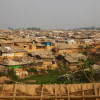
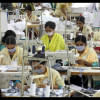


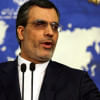


Comments